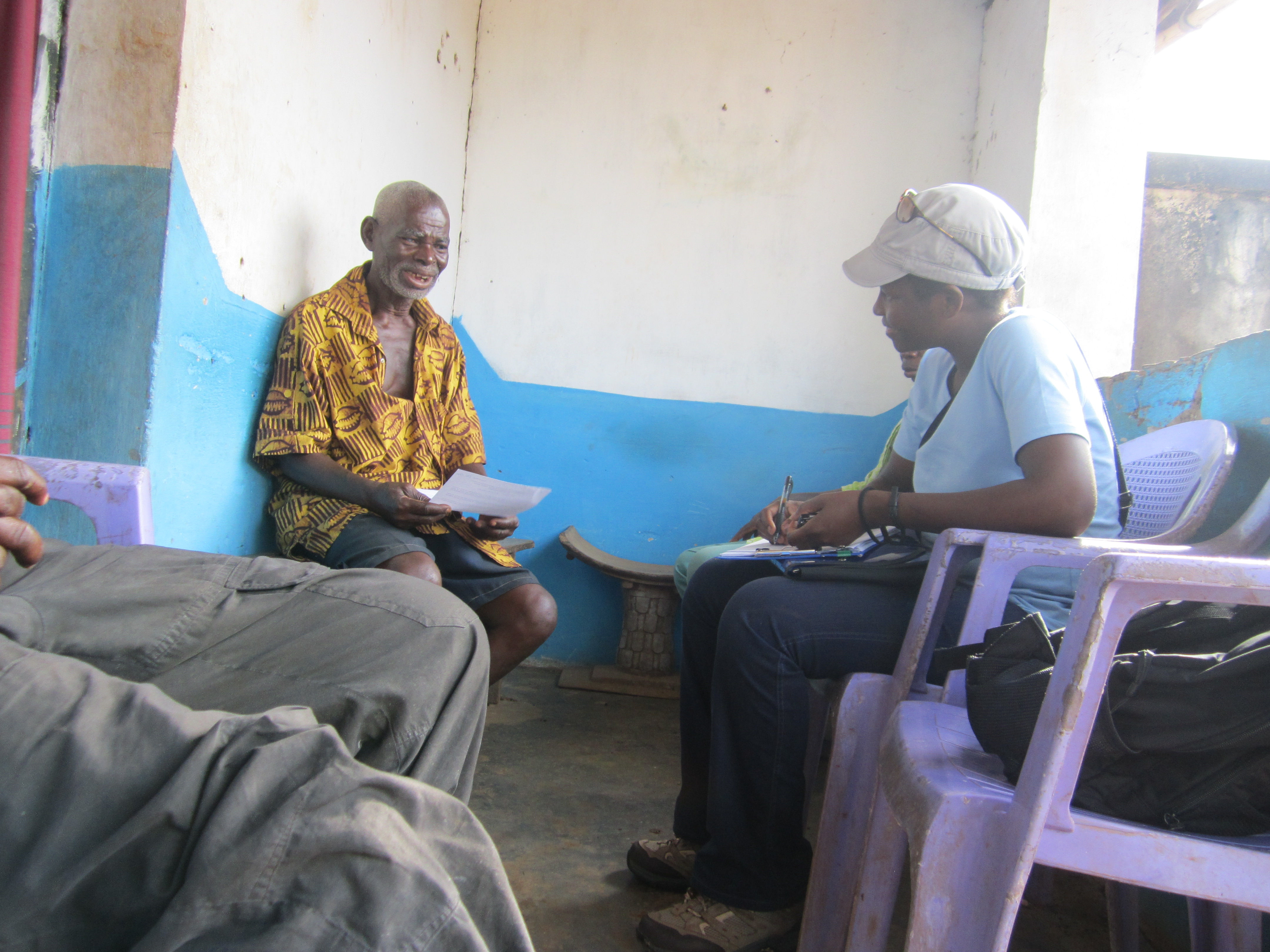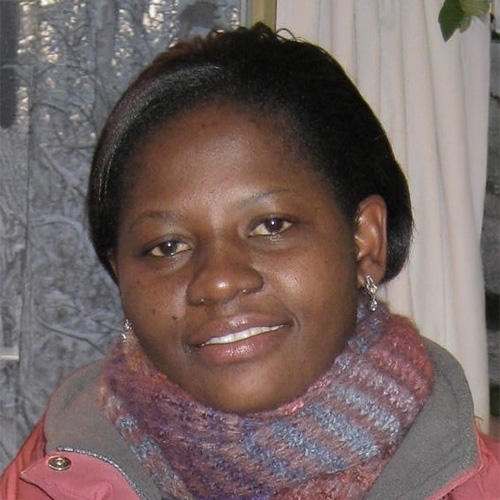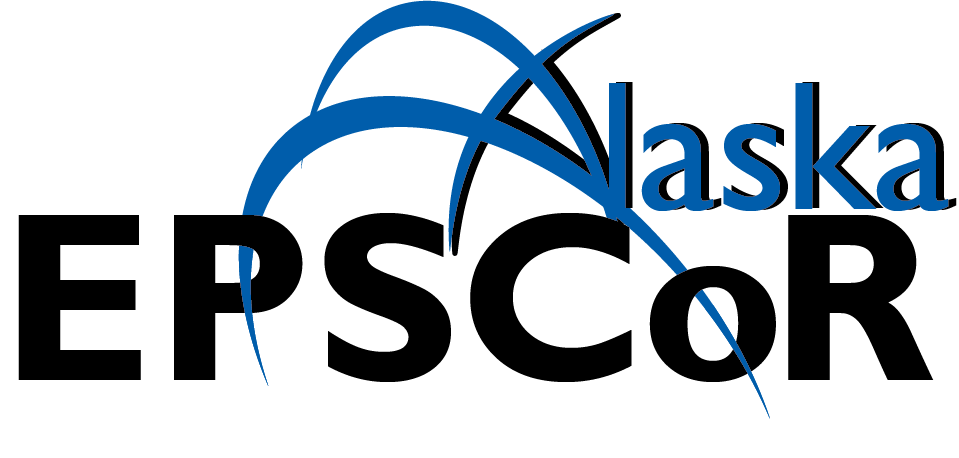Josie Sam joins Interface of Change as Broadening Participation lead, lends global perspective
October 30, 2025

Josie Sam interviews a community resident in Ghana on water access as part of her work with the Nyarkoa Foundation.
Twenty years ago in a village in rural Ghana, Josie Sam asked residents, “What do you need most in this community? What would you like to change?”
The answer she received: people wished they had accessible water in their community so their daughters didn’t have to miss or be late to school fetching water from far away.
This conversation ultimately led Sam to co-found the Nyarkoa Foundation with a mission to install and repair hand pumps in rural villages in Ghana without running water. Since 2007, the foundation has provided drinking water to 23 villages.
In parallel, Sam completed a doctoral degree in natural resources at UAF, which ultimately led to her becoming a professor and co-chair of the UAF Department of Alaska Native Studies and Rural Development. She has been involved in collaborative community work throughout Alaska with the International Arctic Research Center, including ACCAP, and the Food Security Working Group of the Arctic Observing Summit.
Through her many years of experience working with communities in Ghana and Alaska, Sam knows that rural development often is not straightforward. Complex dynamics are at play, and humble listening is critical.
“Each community is unique,” Sam said. “They may be very close to each other, or far apart. They may share some characteristics. But, once you really get to understand them, you find out that one size doesn’t fit all, and you really need to listen.”
Sam now brings her wisdom in her new role on the Alaska EPSCoR Interface of Change project leadership team.
 In this role, Sam will contribute to project leadership decisions and steer the parts
of the project that support the goal to broaden participation in science, technology,
engineering, and mathematics (STEM) education and the STEM workforce in Alaska. She
will oversee scholarships for undergraduate students enrolled in STEM majors through
the Rural Alaska Honors Institute Scholarships (RAHI) program, internships for students in the Alaska Native Science and Engineering Program (ANSEP), and the organization of professional development workshops.
In this role, Sam will contribute to project leadership decisions and steer the parts
of the project that support the goal to broaden participation in science, technology,
engineering, and mathematics (STEM) education and the STEM workforce in Alaska. She
will oversee scholarships for undergraduate students enrolled in STEM majors through
the Rural Alaska Honors Institute Scholarships (RAHI) program, internships for students in the Alaska Native Science and Engineering Program (ANSEP), and the organization of professional development workshops.
“I've always admired the work of EPSCoR,” Sam said. She was excited to accept the recommendation from her dean that she fill this role, formerly held by her colleague Debbie Mekiana, a previous co-chair of the Department of Alaska Native Studies & Rural Development. Mekiana accepted an offer to become the Dean of Academic Affairs at Iḷisaġvik College earlier this year.
“With a program like EPSCoR, we can build on the successes of our researchers and the relationships they have developed with communities, and hopefully keep supporting them with what they need,” Sam said.
Through her interactions with communities, Sam has learned that a lack of follow-up can erode trust in researchers.
“We are tired of being asked what is happening without seeing any results” a community resident she was interviewing once said to her. “We've told you what the issues are.”
Sam explained that although she can't promise anything, her aim is to understand so that we do things the right way. The interaction left a mark on her approach to community work.
“After what I heard from people, and what I knew, I just couldn't really go into a community and conduct research as usual,” Sam said.
Her experiences working with people in rural Alaska informed a book chapter she co-authored that discusses barriers, lessons learned and best practices when collaborating with Alaska Native communities, like respecting tribal sovereignty and traditional knowledge, building trusted relations, and supporting capacity building and networking,
Many researchers have limited capacity and resources to build meaningful relationships with communities or to follow up after a project, Sam acknowledges. In addition, restricted or transient sources of funding can hinder the scope of what researchers and communities can accomplish together.
The Alaska EPSCoR program has run five-year capacity-building projects since 2001. Despite the transience of individual projects, many participants have spanned multiple projects, and the investments in research, researchers, infrastructure, and partnerships have been long-lasting successes.
Sam appreciates that the Interface of Change project focuses on the value of growing relational capacity as a key foundation for building STEM capacity in Alaska. Every time a project results in a successful community partnership, it informs how to plan and budget future projects in a way that supports communities effectively.
“When you have researchers, faculty, who have built established relationships with communities, then that's great,” Sam said. “If you have to write another proposal, you can go to them, maybe there’s some funding left over from the previous project where you can actually spend time saying, you're not promising anything, but you know, what else can we work on?”

